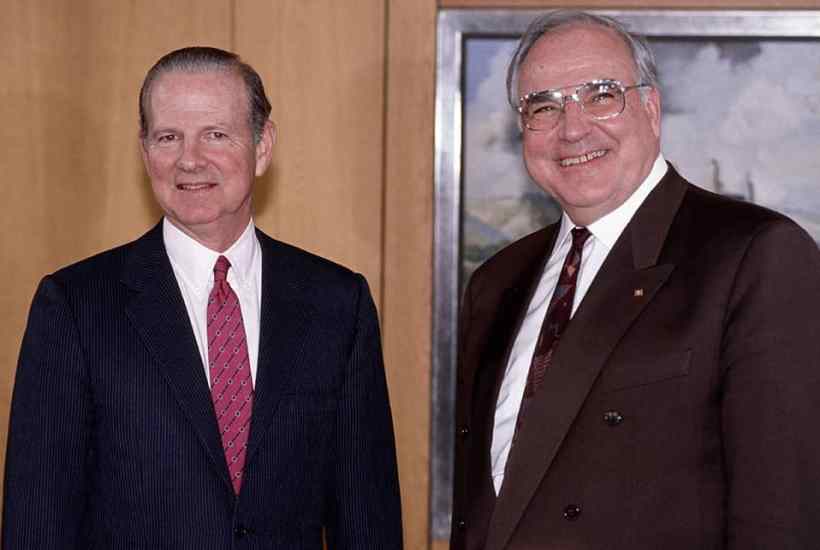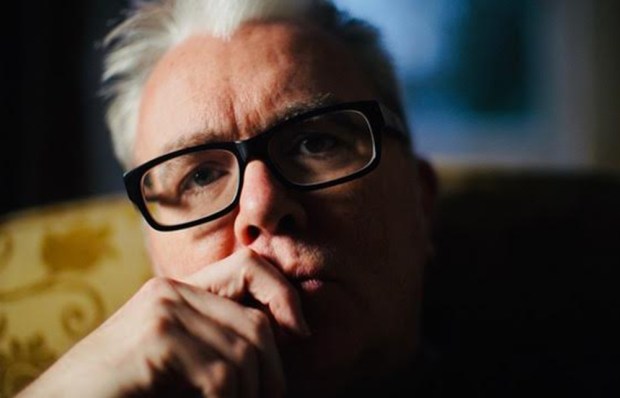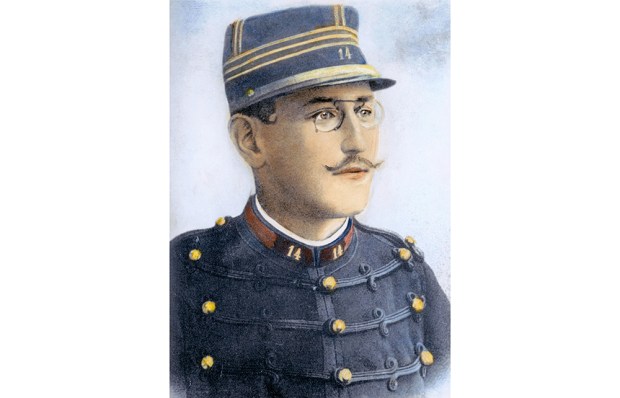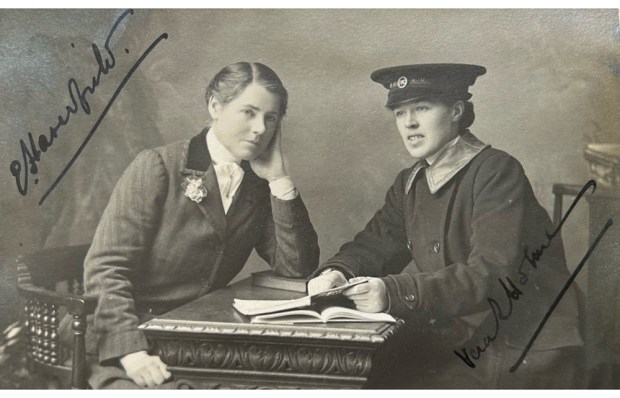This is an important and topical book. Mary Sarotte traces the difficult course of Russia’s relations with Europe and the United States during the decade which followed the fall of the Berlin wall in 1989, a period which saw Russia’s brief dalliance with democracy and Nato’s advance to the frontiers of the old Soviet Union.
The story has been told before, but never so fully or so well. In a remarkable historical coup, Sarotte has persuaded the German foreign ministry to open its archives to her, and the Americans to declassify thousands of documents previously closed to researchers. When Vladimir Putin’s spokesman Dmitry Peskov was moved to denounce so much disclosure of confidential diplomatic material, it became obvious that Sarotte was on to something. For this is the story of how successive Russian leaders were out-manoeuvred by more skilful politicians, notably the wily German chancellor Helmut Kohl and the American secretary of state James Baker.
The expansion of Nato has always been controversial. Russia resisted it with impotent ferocity from the start. A powerful strand of opinion in the US State Department has always believed that their sensitivities should have been accommodated. Russia is a big country with nuclear weapons. It has sat at Europe’s top table since the 18th century. Those elder statesmen of American diplomacy Henry Kissinger and George Kennan thought it the height of folly to humiliate her in her moment of weakness. They were also worried about the risks of extending the American nuclear guarantee to unstable countries on Russia’s borders with ancient issues with their larger neighbour. In 1997, Kennan took to the pages of the New York Times to denounce ‘the most fateful error of American policy in the entire post-Cold War era’. Sarotte’s judgment is more cautious, but her instinct is much the same.
In spite of persistent Russian suspicions, there was no western master plan. American policy was essentially opportunistic, advancing in halting steps as chance opened doors in front of them. With some 340,000 soldiers in East Germany and a cast-iron right of occupation under the four-power agreements of 1945, Mikhail Gorbachev and Boris Yeltsin were in a strong position to resist German unification and the expansion of Nato which followed. At one time it looked as if the West would have to pay a high price for their consent. Russia pressed for German neutrality, something which would probably have destroyed Nato and put an end to the American commitment to European defence. The German foreign minister Hans-Dietrich Genscher seemed willing to concede it. Baker and Kohl were not, but they were prepared to promise that Nato would stay within its current boundaries. ‘Not one inch eastward from its present position’ was what Baker told Gorbachev in February 1990. The exchange fell well short of an agreement, but Russian governments never forgot it.
American policy grew more ambitious as the enormity of the Russian collapse became apparent. The end of the Warsaw Pact was followed by the disintegration of the Soviet Union itself, as it split into 15 separate states, its allies abandoned it, and a once great power subsided into bankruptcy and organised crime. Russia did not have to be bought off after all. The only constraint on American policy now was the fear that if Gorbachev and Yeltsin were pressed too far they would be removed and replaced by hardliners in Moscow, who would be much more dangerous. It nearly happened in August 1991. It did happen, but too late, when Putin succeeded Yeltsin in 2000.
By the time he retired, Yeltsin had reconciled himself to the migration of Russia’s Warsaw Pact allies to Nato. He had even toyed with the idea of applying for Russian membership. But Ukraine and the three Baltic republics were sticking points. Ukraine (the word means ‘border region’) was a particularly sensitive issue. It had been joined to Russia for a millennium. Much of the Soviet nuclear arsenal was stationed there. The Russian Black Sea fleet was based at Sevastopol in the Crimea. When Yeltsin destroyed the Soviet Union by taking Russia out of it, he did not reckon on losing Ukraine. Yet, in a referendum in 1991, the Ukrainians voted by a large majority to go their own way.
The American ambassador in Moscow, Robert Strauss, a savvy newcomer to international politics, saw the implications at once and reported:
The most revolutionary event of 1991 for Russia may not be the collapse of communism but the loss of something Russians of all political stripes think of as part of their own body politic and near to the heart at that: Ukraine.
The Baltics eventually became members of both the European Union and Nato. But to this day neither organisation has dared to welcome Ukraine.
At nearly every page of this outstanding book one comes back to the same question. Was Nato expansion worth the risk of enduring Russian resentment and hostility? The answer is: probably. The Kennan/Kissinger view assumes that an unprovoked Russia would have been more benign, and this seems unlikely. Russia has been a predatory autocracy for three centuries. It has always had a strong sense of entitlement in eastern Europe. It grabbed Poland and the Baltic states in the 18th century. It brutally suppressed successive risings in 19th-century Poland. It posed as the protector of the Slav regions of south-eastern Europe throughout the 19th and 20th centuries. It was constantly beating at the gates of Ottoman Turkey. It conquered all of eastern and central Europe in 1944-5 and imposed satellite communist regimes on them for the next 50 years.
When, in a now notorious essay written at the end of last year, Putin invoked the ghost of the expansionary 18th-century Tsarina Catherine the Great, he was asserting Russia’s inherited rights over eastern Europe. This fantasy no doubt derived its intensity from the humiliations of the 1990s, but it had much older and more fundamental origins. It would not have gone away, however Russia had been handled after 1989. ‘Great empires do not go gracefully into oblivion,’ observed the ever shrewd Strauss from the Moscow embassy.
More cautious statesmen than George Bush and Bill Clinton might have rejected the pleas of the central European states for Nato membership. But it would have been a grotesque essay in great power politics to condemn a third of Europe to indefinite Russian domination. It is what the wartime allies did at Tehran in 1943 and Yalta in 1945. But there was no alternative then, whereas the West had a choice after 1989.
The consequences of leaving former Russian satellites at the mercy of their old master became painfully clear in the next three decades. Those which had no Nato guarantee foundered. Chechnya was reconquered. Georgia was dismembered. Belarus was bribed, and its democracy ‘managed’ out of existence. The Crimea was annexed. Ukraine is now engaged in a desperate struggle for survival in the face of Russian brute force. ‘To hell with that,’ Bush replied when the risks of extending Nato’s reach were pointed out to him. It may have been the wisest judgment.
Got something to add? Join the discussion and comment below.
Get 10 issues for just $10
Subscribe to The Spectator Australia today for the next 10 magazine issues, plus full online access, for just $10.
You might disagree with half of it, but you’ll enjoy reading all of it. Try your first month for free, then just $2 a week for the remainder of your first year.














Comments
Don't miss out
Join the conversation with other Spectator Australia readers. Subscribe to leave a comment.
SUBSCRIBEAlready a subscriber? Log in